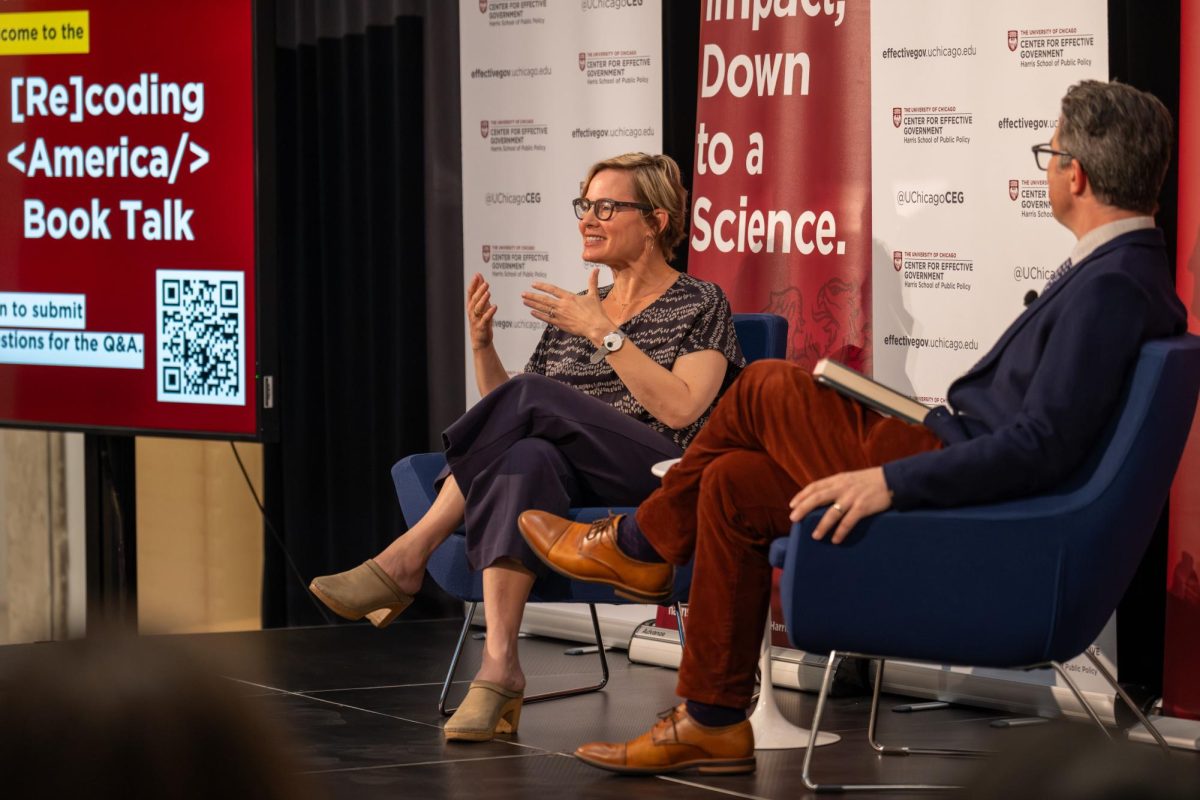The second floor of the Oriental Institute has been buzzing with activity in the past several days as graduate students rush to compile a picture database of the invaluable artifacts that may have been looted from the national museum in Baghdad. In an effort to keep the ancient pieces of art off the black market, the database will serve as a source to inform customs agents, museum curators and military officials about the missing items.
The database will be accessed from a link on the Oriental Institute?s Web site and will contain several thousand thumbnails of artifacts that may have been stolen. Staff at the Oriental Institute hope that the photo collection will allow administrators at European borders and art museums to identify obscure artifacts they otherwise would not be able to recognize.
While students have been able to establish many of the most famous artifacts and scan their images into the database, it has been difficult to create an accurate list of the gallery?s complete collection.
?Much of the documentation for the museum has been lost,? said Mark Altaweel, a graduate student at the Oriental Institute. ?The records in the museum that would have catalogued many of these objects has been either damaged or destroyed in the looting that took place. We can?t really identify what the status of these pieces is without the proper documentation. It?s very hard to tell.?
Like many museums, the gallery in Baghdad had only a relatively small portion of its permanent collection on display, making the task of compiling a list of all the artifacts even more challenging.
?A lot of the stuff [that was taken] was in storage,? said Carrie Hritz, another graduate student at the Oriental Institute.
The looters took over 170,000 artifacts?including clay statues, pottery pieces, and jewelry that in some cases date back almost 5,000 years?that are collectively worth several billion dollars. The best known of these works is a 4,300-year-old bronze mask of an Akkadian king, a benchmark of Mesopotamian culture that has appeared in numerous historical textbooks on the subject.
Scholars at the Oriental Institute and around the country had been anticipating the looting for several months even before the war began because of the long history of archaeological theft in the Middle Eastern region.
?We suspected it would happen from the beginning,? Altaweel said. ?It probably involves the same people that have been looting Iraq for the past 12 years.?
Academics and archaeologists met with government officials in January and repeatedly sent messages alerting them to the possible danger to Iraq?s cultural artifacts. Although the military avoided bombing areas in Baghdad with deep cultural significance, such as the museum and the national library, little was done to secure these buildings after the invasion of Baghdad itself.
Many archeologists feel as though the military ignored their responsibility to protect the country?s most valuable historic possessions.
?I didn?t expect that we would stand by and let them loot the museum and burn the ministries,? McGuire Gibson, a professor at the Oriental Institute and in the department of Near Eastern languages and civilizations, told The New York Times.
Secretary of State Colin Powel responded to criticism from the archaeological community in a press conference Monday, saying that the U.S. ?understands its obligations,? and will ?participate in restoring that which has been broken.?
Faculty and students are currently putting pressure on the government to enforce current laws that forbid the movement and sale of cultural artifacts that were obtained illegally. In the past few days, experts have also been pushing for additional legislation that would temporarily ban the purchase of all Iraqi artifacts and declare an amnesty on Iraqi citizens who return lost cultural merchandise.
Gibson has left for Paris to attend an emergency meeting of the United Nations Education, Scientific, and Cultural Organization, to discuss the possibility of reclaiming many of the priceless treasures, and also to evaluate the general state of Near and Middle Eastern archeology after the war with Iraq.
Experts fear that the pattern of looting displayed an unusual level of selectivity among artifacts, which suggests that the thieves may have been commissioned to steal certain objects long before U.S. troops entered Iraq. In most museum robberies, stolen artifacts would be moved to Europe for appraisal and later sold, students explained, but in this case, wealthy private collectors would have already known the price and may even have financed the entire operation.
Altaweel said that the vaults had appeared to be opened with keys and not explosives, further adding to the suspicion that the robbery was a well-orchestrated plot hatched months in advance.
Some officials, however, believe that many of the artifacts are too famous to be sold at all.
?It would be like trying to fence the Mona Lisa,? Gil Stein, director of the Oriental Institute, told The Chicago Tribune. ?There?s a good chance that those things will be recovered.?









